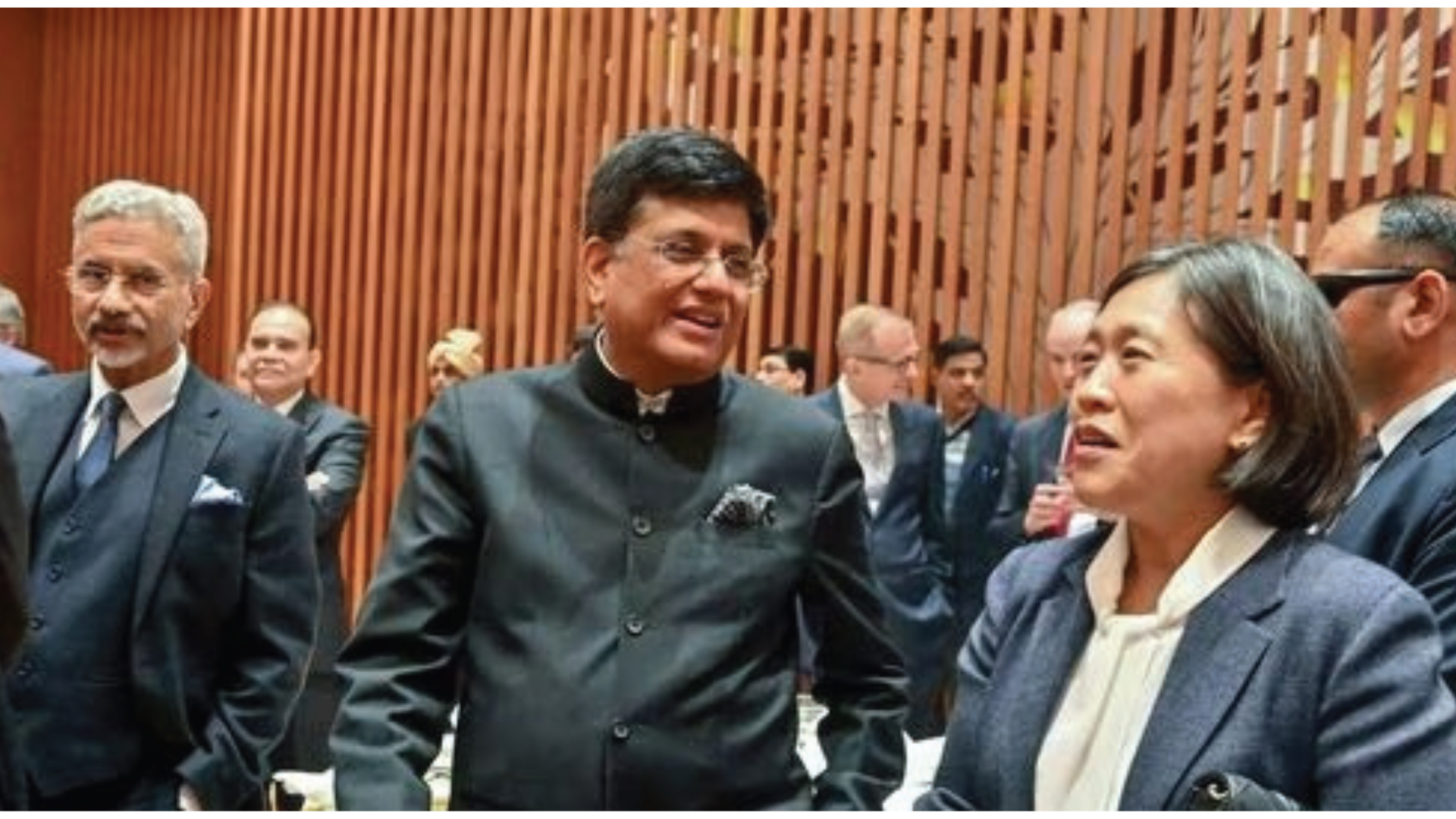India has once again sought restoration of its beneficiary status under the US Generalized System of Preferences programme, emphasized the need to increase the number of inspections by the US Food and Drug Administration (U.S. FDA) in India to facilitate trade and continue to reduce the backlog and conveyed interest in being recognized as a Trade Agreements Act designated country by the United States during the 14th Ministerial-level meeting of the India-United States Trade Policy Forum (TPF) held on 12 January, cochaired by Minister of Commerce and Industry Piyush Goyal and US Trade Representative Katherine Tai.
However, there is no breakthrough in sight on the restoration of India’s beneficiary status under the US GSP programme with the USTR indicating this could be considered, as warranted, in relation to the eligibility criteria determined by the US Congress. The Trump administration in the US, in 2019, revoked the GSP from India which allows eligible developing countries to export duty-free goods to the US. About 1,900 Indian products from sectors such as chemicals and engineering were getting duty-free access to the US market under the GSP, introduced in 1976.
India’s interest in more inspections by the US FDA is in line with their mutual desire to further public health discussions to ensure safe and effective medical products. The US has appreciated India’s remarks, noting that the US FDA has increased staffing to increase pharmaceutical inspections conducted by the agency. The 14th Round of the TPF comes amidst a strong momentum in India-US bilateral trade in goods and services, which continued to rise and likely surpassed USD 200 billion in calendar year 2023 despite a challenging global trade environment.
However, considering the size of the two economies, significant potential remains unrealized and both Goyal and Tai are keen to enhance engagement with the goal of continuing to increase and diversify bilateral trade. However, bottlenecks remain. India is pursuing its interest in being recognized as a Trade Agreements Act designated country by the US, as the two sides had initiated discussions in 2023 on issues related to bilateral government procurement, such as transparency and procedural fairness.
Minister Goyal has also highlighted challenges being faced by business visitors from India due to visa processing time periods and requested the United States to augment processing. Movement of professional and skilled workers, students, investors and business visitors between the countries is another key matter for India which seeks a stronger role of professional services in catalysing bilateral trade between the two countries and resolution of issues related to recognition of professional qualifications and experience.
In this context, both sides agreed to continue discussions on promoting engagement in these sectors. On another subject of high concern for India, namely, agriculture, work is pending on early finalisation of market access for certain agricultural products of interest to both sides.
Goyal and Tai have expressed interest in enhancing their ongoing dialogue on food and agricultural trade issues in 2024 and to continue working to address outstanding issues through the Agriculture Working Groups, as well as the relevant sub-groups, utilizing science and risk-based principles.
The Ministers welcomed the engagement and information exchange on necessary regulations regarding import of animal feed products, including alfalfa hay. Following the 14th Round of deliberations, Commerce Minister Goyal and Ambassador Tai have agreed to pursue enhanced engagement leading to mutually beneficial outcomes in certain areas, including critical minerals, customs and trade facilitation, supply chains and trade in high tech products.
This will involve developing an ambitious and On the trade facilitation front, going forward, the two IPEF partners will establish a pathway to mutually recognise results from accredited conformity assessment bodies utilising mutual recognition arrangements (MRAs) related to international Laboratory Accreditation Cooperation and International Accreditation, on a bilateral basis whenever possible. This will allow labs and conformity assessment bodies to certify that products are compliant with certain standards, eliminate duplicative testing requirements and reduce compliance costs for trade in high-quality goods.
For this, priority sectors of mutual interest will be identified for implementation and a joint facilitative mechanism will be set up for the same. In another significant takeway on the ongoing discussions related to ensuring patient access to affordable medical devices, including through the trade margin rationalization (TMR) approach, India and the US are likely to enhance engagement to address measures that restrict trade in the sector, such as standards and pricing issues for medical devices, including for cardiac stents and knee implants.
However, concerns remain on the overdependence and lack of diversity in active pharmaceutical ingredients (API) within the global pharmaceutical supply chain and this could pave the way for the two sides to collaborate to derisk and diversify with a focus on key starting materials. They offered to explore ways that the United States can supplement ethanol supply in India for fuel blending in the event that stocks in India fall short of demand.
Indian side noted the United States’ request for cooperation in this regard. Intellectual Property With the Commerce Minister and Ambassador Tai directing the five TPF Working Groups to reconvene quarterly, either in person or virtually, and identify specific trade outcomes, India and the US have moved to ensure that the trade relationship continues on its positive trajectory.
They also instructed senior officials to hold an in person inter-sessional TPF meeting by mid- 2024 and plan to reconvene the TPF at the Ministerial level before the end of 2024.

